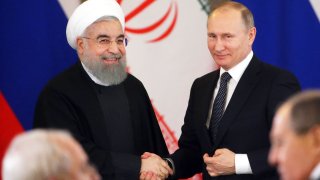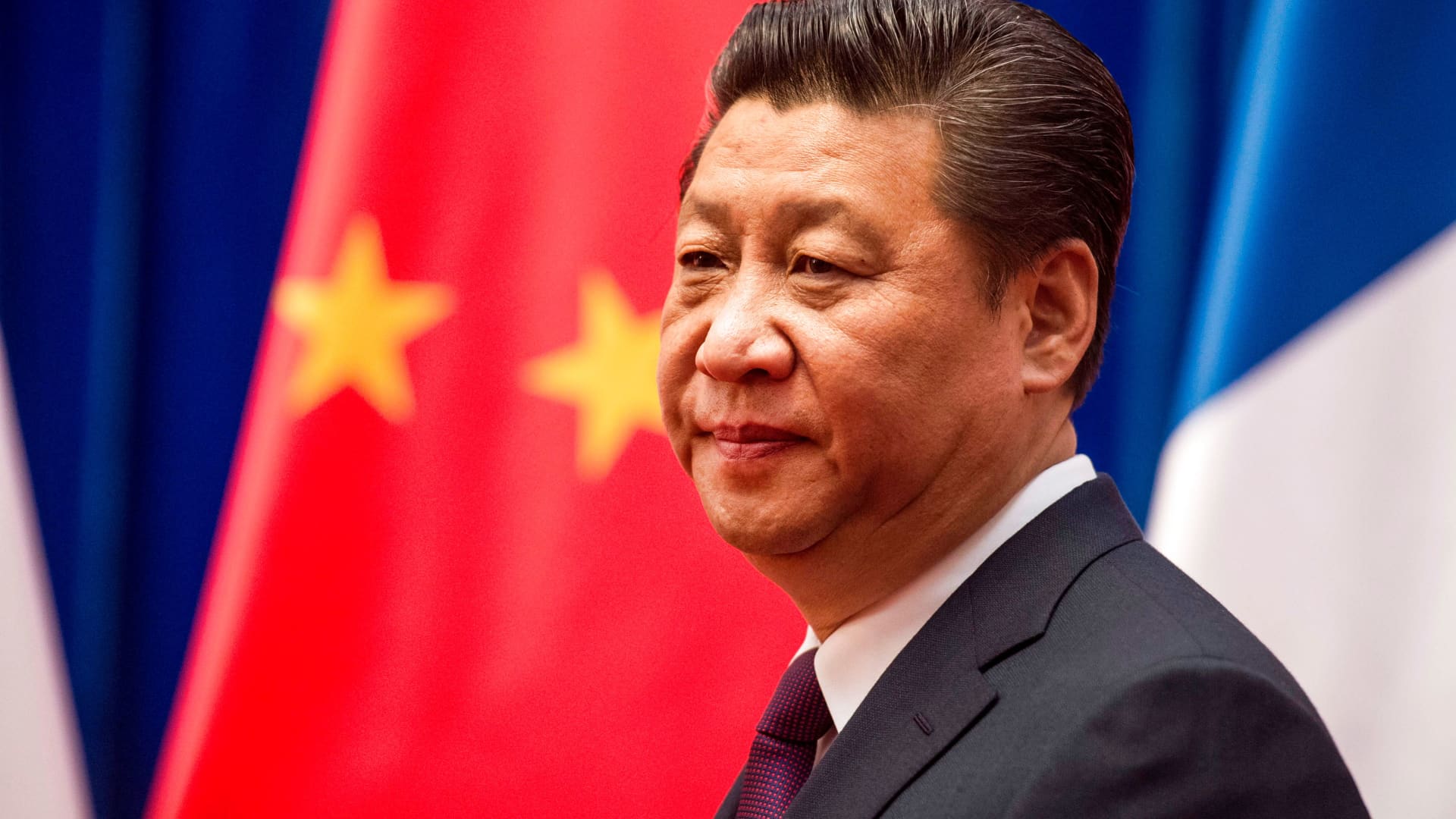
- Russia and Iran both carried out operations to try to interfere in the 2020 presidential election between Joe Biden and Donald Trump, according to a U.S. intelligence report.
- But intelligence experts also found that China, which was previously thought to be expanding its U.S. influence efforts, ultimately did not deploy operations to affect the outcome of the Trump-Biden election.
- The report also said there are no indications that foreign actors attempted to alter U.S. ballots or vote tabulation.
Russia and Iran both carried out operations to try to interfere in the 2020 presidential election between Joe Biden and Donald Trump, according to a U.S. intelligence report released Tuesday.
The U.S. intelligence community also determined that China did not try to change the outcome of the 2020 races and said there are no indications that foreign actors attempted to alter U.S. ballots or vote tabulation, the report says.
Get top local stories in Philly delivered to you every morning. Sign up for NBC Philadelphia's News Headlines newsletter.
The assessment was released as the Biden administration works to bolster relationships with key U.S. allies in order to mount pressure on Russia and Iran.
"From his first phone call with President Putin, President Biden has been clear that the United States will respond to a number of destabilizing Russian actions," a White House official said in a statement to NBC News later Tuesday.
Those actions include the SolarWinds hack, for which U.S. agencies say Russia is likely to blame, as well as the alleged poisoning of prominent Kremlin critic Alexey Navalny, the statement said.
Money Report
"You've already seen us take a number of actions in response to Russia's use of a chemical weapon in the attempted murder of Alexey Navalny," the official said. "There will be more soon."
Tehran and Moscow have previously denied any involvement in attempting to influence U.S. elections.
But the report said that Russian President Vladimir Putin authorized "influence operations aimed at denigrating President Biden's candidacy and the Democratic Party, supporting former President Trump, undermining public confidence in the electoral process, and exacerbating sociopolitical divisions in the US."
One of Moscow's key strategies, the report said, was to use Russian intelligence-linked proxies to spread misleading claims and narratives among certain U.S. media outlets and individuals — "including some close to former President Trump and his administration."
Those plans were put in action by "a range of Russian government organizations," according to the report.
Iran, meanwhile, "carried out a multi-pronged covert influence campaign intended to undercut former President Trump's reelection prospects—though without directly promoting his rivals—undermine public confidence in the electoral process and US institutions, and sow division and exacerbate societal tensions in the US," according to the report.
Intelligence experts also found that China, which was previously thought to be expanding its U.S. influence efforts, ultimately did not deploy operations to affect the outcome of the Trump-Biden election.

"China sought stability in its relationship with the United States, did not view either election outcome as being advantageous enough for China to risk getting caught meddling," the report said.
Beijing "assessed its traditional influence tools—primarily targeted economic measures and lobbying—would be sufficient to meet its goal of shaping U.S.-China policy regardless of the winner."
However, one expert — the National Intelligence Officer for Cyber — assessed that China "did take some steps to try to undermine former President Trump's reelection."
Those assessments, each of which was delivered with "high confidence," came in a declassified report released through the Office of the Director of National Intelligence. The investigation was carried out by the Departments of Justice and Homeland Security, FBI and the Cybersecurity and Infrastructure Security Agency, or CISA.
The report also found that, unlike in the previous presidential election cycle, there were no indications that foreign actors attempted to alter voter registration, ballots or vote tabulation in the 2020 U.S. elections.
"We assess that it would be difficult for a foreign actor to manipulate election processes at scale without detection by intelligence collection on the actors themselves, through physical and cybersecurity monitoring around voting systems across the country, or in post-election audits," the authors of the intelligence report wrote.
In a statement, House Intelligence Committee Chairman Adam Schiff, D-Calif., stressed that the report shows Russia remains the biggest threat to U.S. elections.
While China and Iran also "took specific steps related to U.S. elections," Schiff said, they were at "a far less significant or systematic level than those undertaken by Russia."
"We must be clear and direct with the American people that different countries have differing intents and capabilities, and are not equal threats to our free and fair elections," Schiff said.
Senate Intelligence Committee Chairman Mark Warner, D-Va., said that while the U.S. has strengthened its defenses against foreign interference, "the problem of foreign actors trying to influence the American electorate is not going away and, given the current partisan divides in this country, may find fertile ground in which to grow in the future."
In addition to Iran and Russia, the investigation found that Cuba, Venezuela and Lebanese Hezbollah also worked to influence the election, though on a smaller scale.
The unclassified assessment published on Tuesday builds on the analysis that the intelligence community provided to policymakers throughout the 2020 election cycle.






